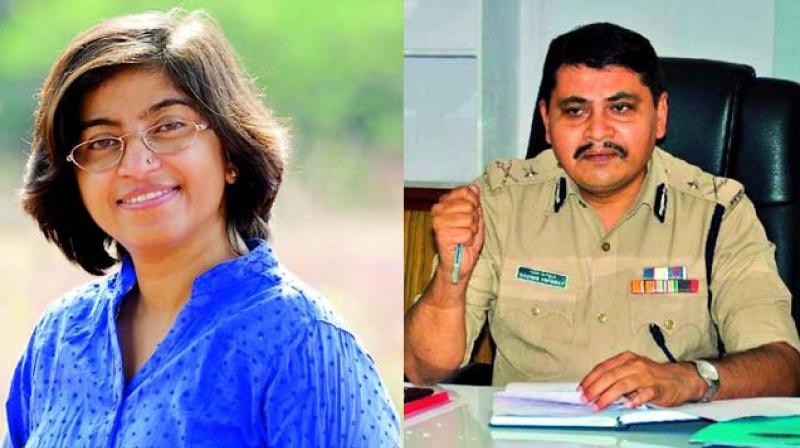Sunitha Krishnan, Mahesh Bhagwat happy with anti-trafficking Bill

Hyderabad: India’s first comprehensive anti-trafficking Bill was passed in the Lok Sabha on Thursday, making trafficking an organised crime.
Two crusaders from Telangana state, Prajwala co-founder Sunitha Krishnan and Rachakonda police commissioner Mahesh Bhagwat were part of the think tanks that drafted the long overdue legislation.
The Bill received unanimous support from all political parties in the Lok Sabha. Adding significance, the draft was read out by TRS MP Kalvakuntla Kavitha.
The Trafficking of Persons (Prevention, Protection and Rehabilitation) Bill, 2018 provides for confidentiality of victims, witnesses and complainants, time-bound trial and repatriation of victims.
Reacting to the passage of the Bill, Ms Krishna told this newspaper that the journey started in 2004 when she filed a PIL (56/2004) in the Supreme Court. The verdict of it came in December 2015 .
“After two years of consultations, we are seeing the legislation. All parties unanimously said they opposed human trafficking, not a single person voted against the Bill. It is a victory for the victims and the anti-trafficking moment,” Ms Krishnan said.
“We have moved from rhetoric and speeches to war against trafficking.”
Ms Krishnan played a major role in collecting the voices of thousands of trafficked victims and submitted suggests made by the survivors. She said Ms Kavitha not only read the Bill but made a few suggestions. Union minister Maneka Gandhi promised not to make any changes in the Bill.
Not many know that Mr Bhagwat was called by the Prime Minister’s Office over a videoconference to seek his suggestion on the legislation. Mr Bhagwat told this newspaper, “I proposed stringent punishment against the customers, the client should be prosecuted as they generate demand.” He said the law currently had no mention about the criminal role.
His second suggestion was about fast-track trial because the victims, once rescued, will not stay for a long time either at a Home or with authorities. If the trial gets delayed, the victims may re-enter the sex trade, he said. “In case the victim gets married, she may refused to appear before the court. Thus a fast-track trial is important,” said Mr Bhagwat, whose work against trafficking since 2004 has been recognised by the US.

